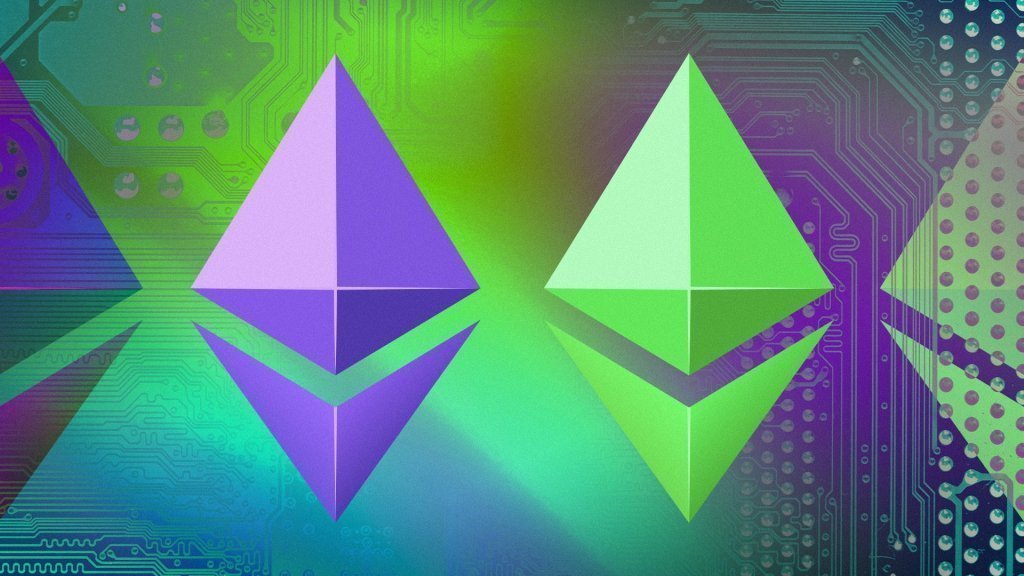The countdown has begun for the highly anticipated Ethereum Merge. However, there are misconceptions about exactly what will happen when Merge happens. The move to Proof-of-Stake (PoS) is just one step towards realizing Ethereum’s long-term vision. The leading altcoin will only be at 55% of its full potential after Merge.
Ethereum Merge is close, what does it mean for Ethereum?
The developers successfully launched one of the last test upgrades before Merge was released. With the final Bellatrix Upgrade complete, Ethereum co-founder Vitalik Buterin said that Merge will officially take place between September 13 and September 15.
As the day approaches, there has been misunderstanding about exactly what will happen when Ethereum receives its much-anticipated upgrade. One assurance from Merge is the transition to a PoS consensus mechanism. By switching to PoS, Ethereum will use less energy. It will become more secure. Also, it will be better for implementing new scaling solutions.

Currently, Ethereum is working on a PoW system that requires large amounts of energy. While on PoW, Ethereum miners use high-power computers to solve complex mathematical problems to add blocks to the network and earn new tokens. With the move to PoS, powerful computers will no longer be needed to solve these math problems. Therefore, experts expect energy consumption to decrease by 99.95%.
In the PoS Blockchain, miners will now be replaced by validators who will have to pledge or ‘share’ 32 ETH or ETH tokens to earn the block reward. Once staked, funds are locked. It acts as collateral to eliminate any possibility of misapplication. The PoS consensus mechanism randomly selects validators. But validators with the most money invested the longest increase their chances of creating the next block.
What will happen after Ethereum Merge?
The move to PoS is one of the better known aspects of Merge. However, some assumptions about this transition are starting to gain traction. One in particular has to do with speeds on the Ethereum Blockchain post-Merge. Ethereum is one of the most popular and widely used blockchains. Because of this, transaction speeds have taken a hit. At peak times, users sometimes had to wait hours before their transactions were finalized on the Blockchain.

Many users are optimistic that the transition to PoS will speed up these delayed transactions. Unfortunately, this is not the case. There is a quote directly on the Ethereum website that states, “Although there will be some minor changes after Merge, the transaction speed will mostly remain the same.” These referenced changes relate to the speed with which blocks are added to the Blockchain. In PoS, blocks are generated about 10% faster. It’s a nice advantage, of course, but not enough to be noticed by users.
Another assumption that goes hand in hand with supposedly faster transactions is cheaper gas or user fees. Again, this is unfortunately not the case. Gas charges are calculated based on the capacity of the network. Switching to PoS will not increase Ethereum’s capacity. Therefore, it is possible for gas prices to be high when traffic is congested.

What will happen after Ethereum Merge happens?
Moving to PoS lays the foundation for Ethereum to support more use cases in the future. In fact, Vitalik Buterin says that Blockchain will only be in about 55% of its development after Merge.
The next goal of Ethereum developers is a process known as sharding, which will split the main blockchain into smaller, more efficient blockchains. You can think of sharding as Ethereum’s conversion from a dirt road to an interstate highway. When it’s live, the speeds will be more. Plus, those pesky fees will likely drop. It will also further reduce the amount of data validators have to store on their machines. This means they can work using a laptop instead of a series of costly computers.

Ethereum is building for the future
The move to PoS is just one step in a long-term vision for Ethereum. However, the most vital step. So, while Ethereum Merge is probably not what you think, it’s a significant achievement. On the other hand, it doesn’t mean that Ethereum looks any less attractive as an investment. It’s actually more promising for those with a long-term investment horizon.
As you follow on Kriptokoin.com, Ethereum hit an all-time high in November 2021. However, it has since lost about two-thirds of its value. At that time, Ethereum was only 40% of its development in Buterin’s eyes.